38 what to look for when reading nutrition labels
Reading Food Labels | ADA - American Diabetes Association Put food labels to work The Nutrition Facts labels on foods are really the key to making the best choices. We'll cover the basics so that these labels make shopping easier for you. Get started Understanding Carbs You've heard it all. From carb-free to low-carb, to whole and empty carbs, it's hard to know what it all means. Learn more What To Look For On Nutrition Labels & Why It Matters The major components are calories, our big three macronutrients, and the amount of sugar, depending on your goals of course. A bodybuilder, powerlifter, or other strength athlete is always looking to put the best in their bodies as they grind away and having the right ingredients on your nutrition label is vital to success.
How to Read Nutrition Labels 🤓 - quiz.eative.com How to Read Nutrition Labels 🤓. People look at food labels for a variety of reasons. But whatever the reason, many consumers would like to know how to use this information more effectively and easily. The following article is intended to make it easier for you to use the Nutrition Facts labels to make quick and informed food decisions.

What to look for when reading nutrition labels
How to Read Nutrition Labels: Find Out What's Really in Your Food! In a typical, balanced diet, anywhere from 50-60% of your daily calories should come from carbohydrates. Still, like fats, not all sources of carbs are created equal. Favor whole-grains, fruits and vegetables over white bread/pasta/rice and sweets when it comes to meeting that need for carbs. 6. Fiber. How to Understand and Use the Nutrition Facts Label | FDA When looking at the Nutrition Facts label, first take a look at the number of servings in the package (servings per container) and the serving size. Serving sizes are standardized to make... Tips for Learning How to Read Nutrition Labels - Fit People Nutrition labels must state allergens with a different typeface that differentiates them from other ingredients. For example, they might write them in bold, underlined, capital letters, etc. If there isn't a list of ingredients on the wrapper, the label will have to reflect the allergens by stating, "contains…". Salt
What to look for when reading nutrition labels. Key Points when Reading Nutrition Labels | Mayo Clinic Connect We want to aim for less than 5 grams of saturated fat per serving, and 0 grams of trans fat. Sodium. We often encourage no more than 600 mg sodium per meal, or less than 200-300 mg sodium per serving. Carbohydrate. Consider looking at Total Carbohydrate first and foremost. The rest of the breakdown can inform you of nutritional value ... How to Read Food Labels Without Being Tricked - Healthline The product may contain very little whole grains. Check the ingredients list — if whole grains aren't in the first three ingredients, the amount is negligible. Fortified or enriched. This ... A Beginner's Guide to Reading Nutrition Labels You check the nutrition label on a product, and you notice it has some added sugar. However, you take a look at the ingredient list, and sugar is nowhere to be found. There are several types of sweeteners and sugars that manufacturers use to produce their products. Check out the names for some of the most common: Sucrose High fructose corn syrup Easy Guide to Understanding Food Labels When You Have High ... - MyDoc Ideally, best to get 0 grams of this per day. Keep in mind that manufacturers can list their products as 0 grams if it has less than 0.5 grams of trans fat per serving. This means that your food may contain trans-fat even if the food label says 0 gram. Therefore it's important to check the ingredient list (more on this later).
Reading Nutrition Labels: 12 Tips To Avoid Getting Tricked If you want to eat more of a nutrient, say fiber, look for products with more than 15% DV of the same. If you want to cut back on a nutrient, say sodium, look for products with less than 5% DV of the same as a rough guide. Sugar Can Be Complicated reading nutrition labels How to Read Nutrition Labels: Fat Content, Carbs & What To Look For Nutrition labels are required to include total fat, saturated fat, and trans fat. The total amount of fat in the diet is a percentage of your calorie needs. The recommendation for the typical American diet is around 30%. For someone taking in 2,000 calories, this would mean around 70 grams of total fat per day. Reading food labels: Tips if you have diabetes - Mayo Clinic Look for foods with fats, cholesterol and sodium on the low end of the Daily Value; keep fiber, vitamins and minerals on the high end. If your doctor or registered dietitian recommends more or less than 2,000 calories a day, you may need to adjust the percentage accordingly — or simply use the percentage as a general frame of reference. How to Read Nutrition Labels - Roswell Park Comprehensive Cancer Center Here's the top five things to look for: 1. Watch the Serving Size (Blue) The serving size is the first piece of information listed on the label. It indicates the amount of food the rest of the nutrition label is referring to. Serving sizes are listed in standard measurements, such as cups or pieces. Compare your portion size (the amount you ...
How to Read Nutrition Facts Labels the Right Way - GoodRx Understanding how to read a Nutrition Facts label is an important skill when it comes to eating healthfully. Some nutrients on a label are important to get more of, while others should be limited. It's also important to look at the serving size and ingredients in order to make healthy choices. What to Look For on Nutrition Labels - dummies This list gives you the skinny on the most important information featured on Nutrition Facts labels: Calories: The calorie total is based on the stated serving size — so if you eat more or less than what the label lists as one portion, you need to do the math. Dietary fiber: Choose the foods with the most fiber. How to Read Nutrition Labels | Eat Smarter USA Some specific things I like to look out for on my nutrition label are saturated fat, trans fat, sodium, and added sugars. While healthy natural fats are needed in our daily diet, saturated and trans fats are single-bonded fats which are not good for the body, and can result in issues such as blocked arteries and high cholesterol. Nutrition Labels on Food: How to Read Them, and Read ... - Fooduciary Reading nutrition labels can be tricky, but is essential if you want to eat healthy and protect your health. Learn what to look for, and how to compare different food choices. If you or anyone you know is suffering from health issues like: abdominal pain, food allergies, fatigue, candida, diabetes or obesity, reading nutrition labels as part of your clean eating lifestyle can go a long way ...
Why You Should Be Reading the Nutrition Label (And How to Do It!) Here is a general guideline to follow when reading food labels for sodium: 5% or less of the daily value per serving is considered low 20% or more of the daily value per serving is considered high Total Carbohydrates Carbohydrates break down into glucose during digestion, which can be used as energy.
Food label reading guide | Nutrition Australia What to look for when reading food and drink labels (per 100g) Health Star Ratings The Health Star Rating is a front of pack labelling scheme which can be used to make healthier food choices at a glance. The rating range is from ½ - 5 stars and the more stars, the healthier the choice. Recommended minimum star ratings for food and drink categories
How to Read Supplement Labels Like a Pro - Healthline Ingredients. When selecting a supplement, reading the ingredient label is key. Check carefully for ingredients like fillers, sweeteners, preservatives, and additives, all of which will be listed ...
How To Read Nutrition Labels the Right Way - Schneck Medical Center Limit the amounts of added sugars, saturated fat and sodium you eat, and avoid trans fat. When choosing among different brands or similar products, compare labels and choose foods with less of these nutrients when possible.". Make sure you're always getting the proper nutrients and their benefits. Be sure to understand the % Daily Value.
What to Look For When Reading Nutrition Labels — Cindi Stickle Things with vitamins A, C, and D, iron, calcium, and potassium are good choices. - Minimize contact with bad fats The more saturated fat you eat, the higher your risk for illnesses you are trying to avoid. Try to look for items with no trans-fat and no or minimal amount of saturated fats. If you do choose these items, eat them in moderation.
How to understand food labels | Eat For Health The Nutrition Information Panel on a food label offers the simplest and easiest way to choose foods with less saturated fat, salt (sodium), added sugars and kilojoules, and more fibre. It can also be used to decide how large one serve of a food group choice or discretionary food would be and whether it's worth the kilojoules.
Reading Nutrition Facts Labels Like a Pro: Dietitian Tips ... - NutriSense When looking at nutrition labels, make sure there are no added sugars. Depending on the food product, Molly ideally prefers to see a range of 0.0 to 0.5 grams of sugar, but it depends on the situation so she doesn't have a specific range that fits every case. Fewer Ingredients = Healthier Choices
Food Labels | CDC - Centers for Disease Control and Prevention If you eat the whole thing, you are eating 8 times the amount of calories, carbs, fat, etc., shown on the label. Total Carbohydrate shows you types of carbs in the food, including sugar and fiber. Choose foods with more fiber, vitamins, and minerals. Choose foods with lower calories, saturated fat, sodium, and added sugars. Avoid trans fat.
How To Read Food and Beverage Labels - National Institute on Aging At the top of the Nutrition Facts label, you will find the total number of servings in the container and the food or beverage's serving size. The serving size on the label is based on the amount of food that people may typically eat at one time and is not a recommendation of how much to eat. Read more about serving and portion sizes.
Understanding Food Nutrition Labels | American Heart Association 1 - Start with the serving information at the top. This will tell you the size of a single serving and the total number of servings per container (package). 2 - Next, check total calories per serving and container. Pay attention to the calories per serving and how many calories you're really consuming if you eat the whole package.
What Should I Look for When I Read Nutrition Labels? Here's your quick list to determine if the label you're reading passes the PLANTSTRONG sniff test. 1) Sodium: Your recommended total daily intake should be around 1500-2000mg daily so when reading a label, you want the number of calories per serving to be equal to or lesser than the number of milligrams of sodium per serving.
The 8 Most Important Things to Look For on Nutrition Labels In her book "Skinny Chicks Eat Real Food," celebrity nutritionist Christine Avanti offers these general guidelines for reading a nutrition label right: • Serving size: This tells you what amount of the food or drink the nutritional information is based on. Some nutrition panels will also tell you how many servings are in the package or container.
Tips for Learning How to Read Nutrition Labels - Fit People Nutrition labels must state allergens with a different typeface that differentiates them from other ingredients. For example, they might write them in bold, underlined, capital letters, etc. If there isn't a list of ingredients on the wrapper, the label will have to reflect the allergens by stating, "contains…". Salt
How to Understand and Use the Nutrition Facts Label | FDA When looking at the Nutrition Facts label, first take a look at the number of servings in the package (servings per container) and the serving size. Serving sizes are standardized to make...
How to Read Nutrition Labels: Find Out What's Really in Your Food! In a typical, balanced diet, anywhere from 50-60% of your daily calories should come from carbohydrates. Still, like fats, not all sources of carbs are created equal. Favor whole-grains, fruits and vegetables over white bread/pasta/rice and sweets when it comes to meeting that need for carbs. 6. Fiber.


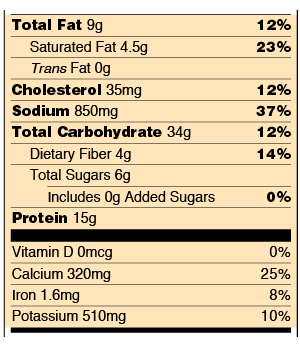

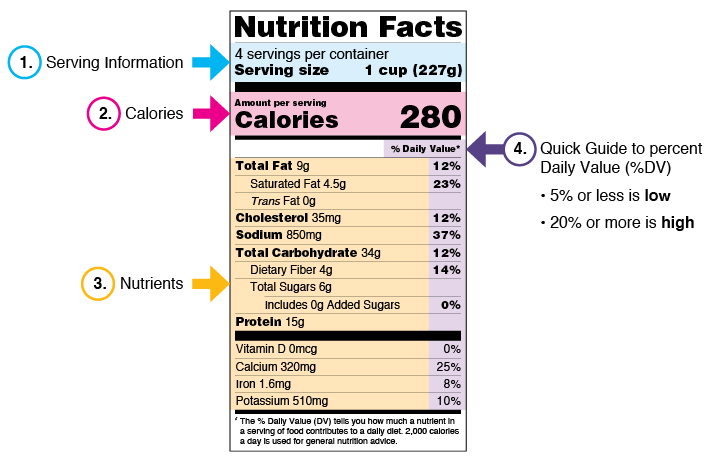
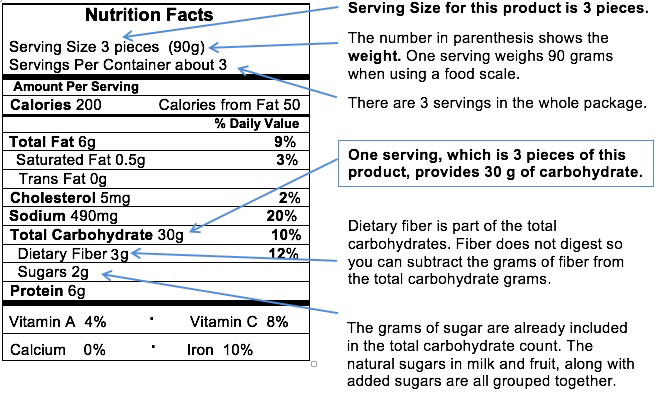

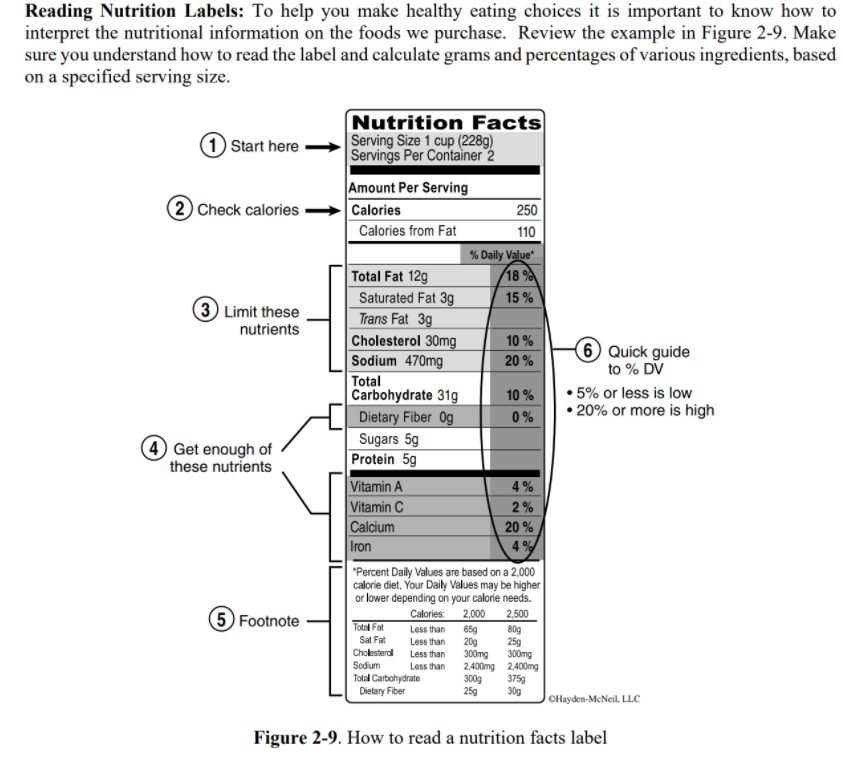

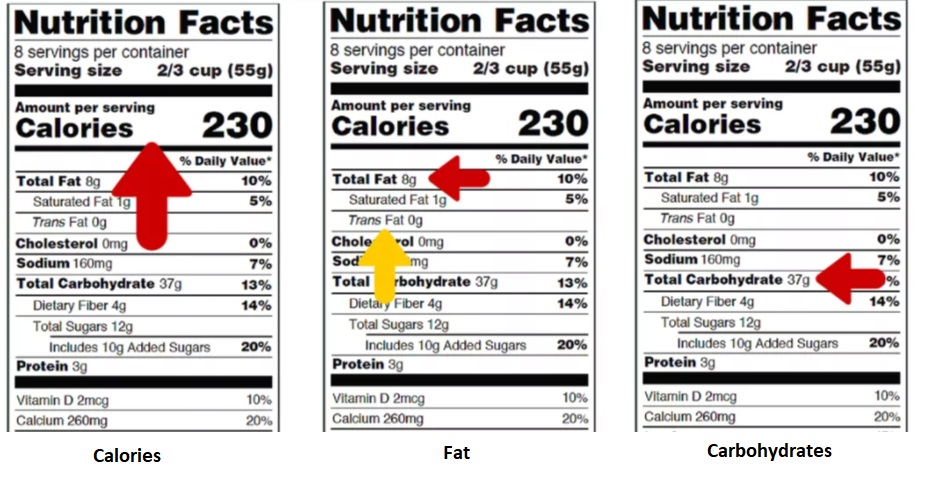
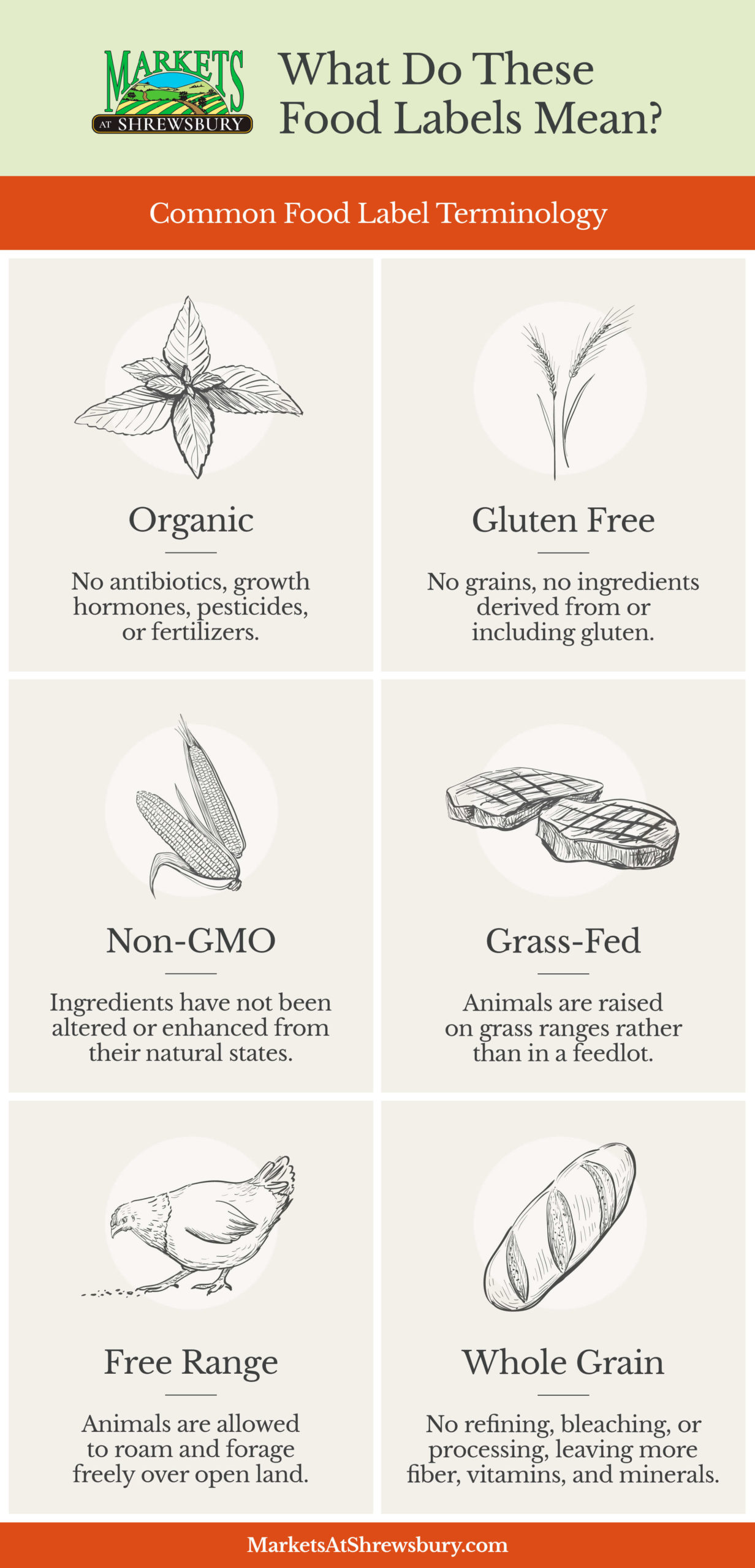
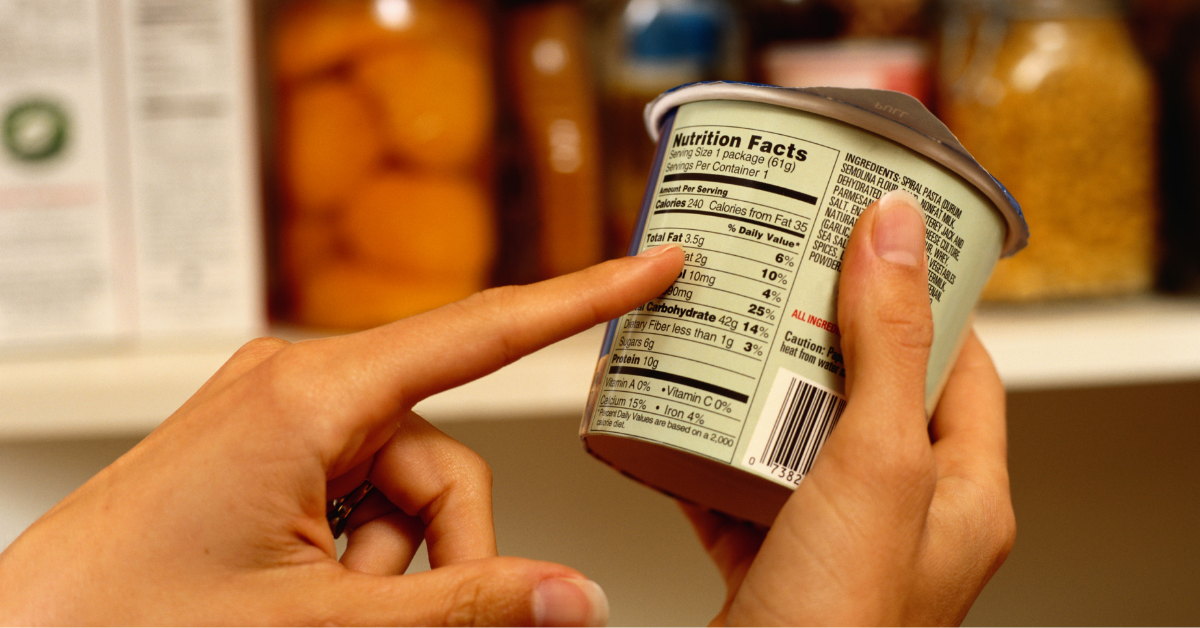


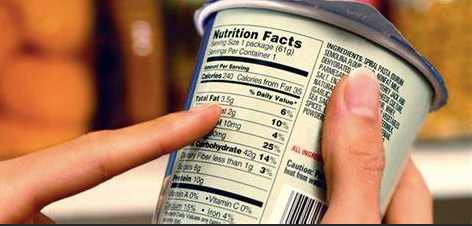


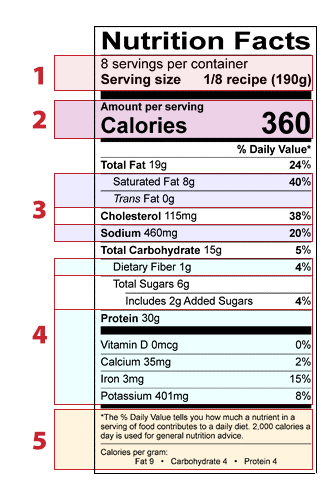


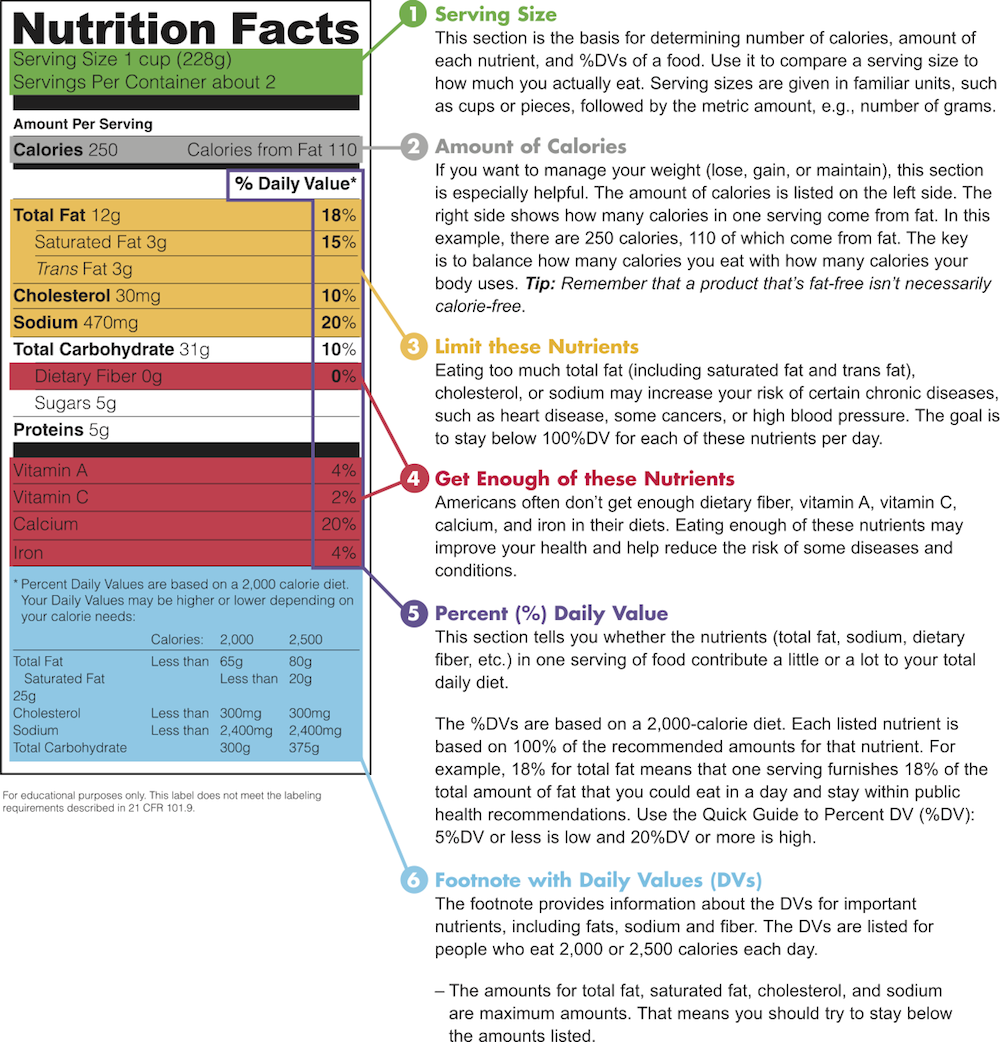
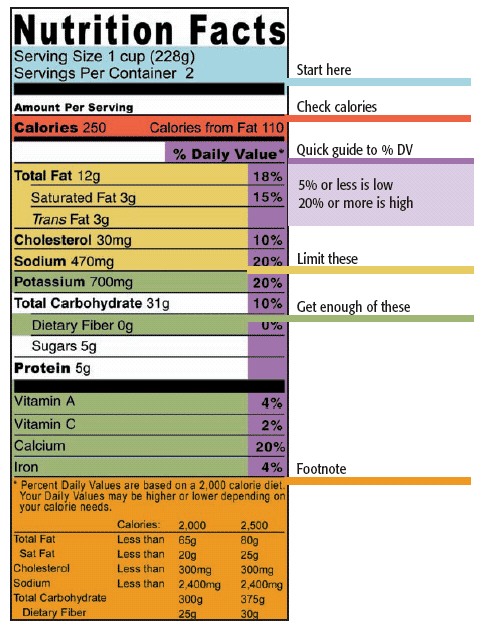

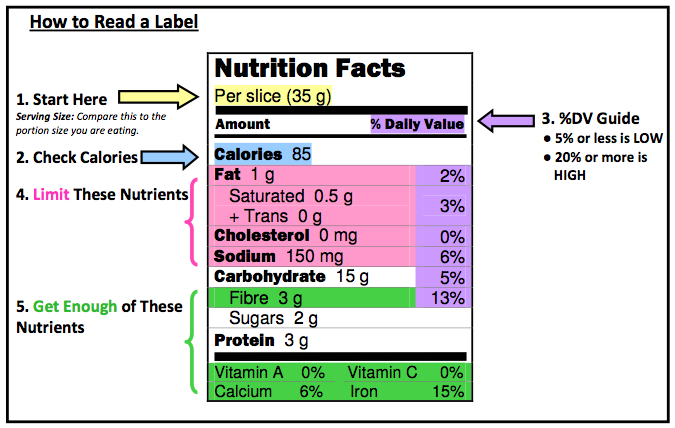
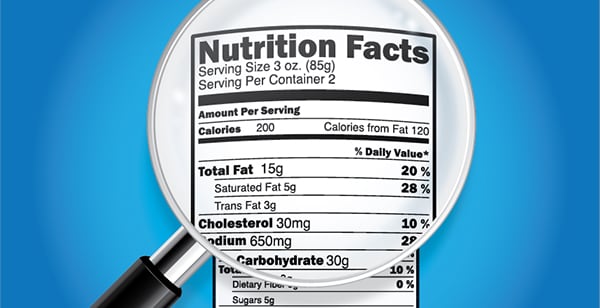
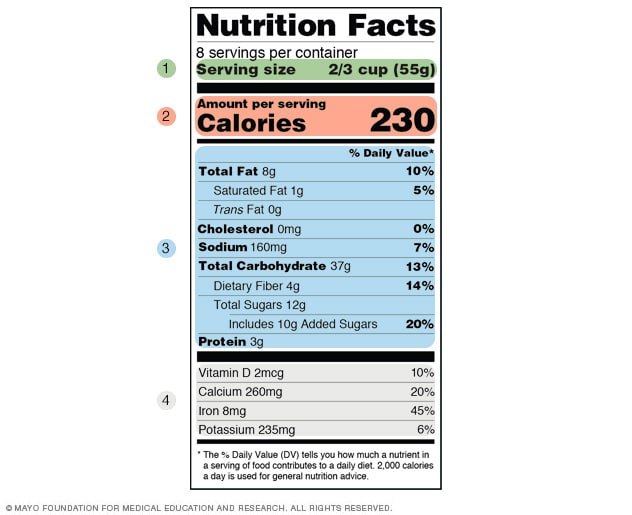

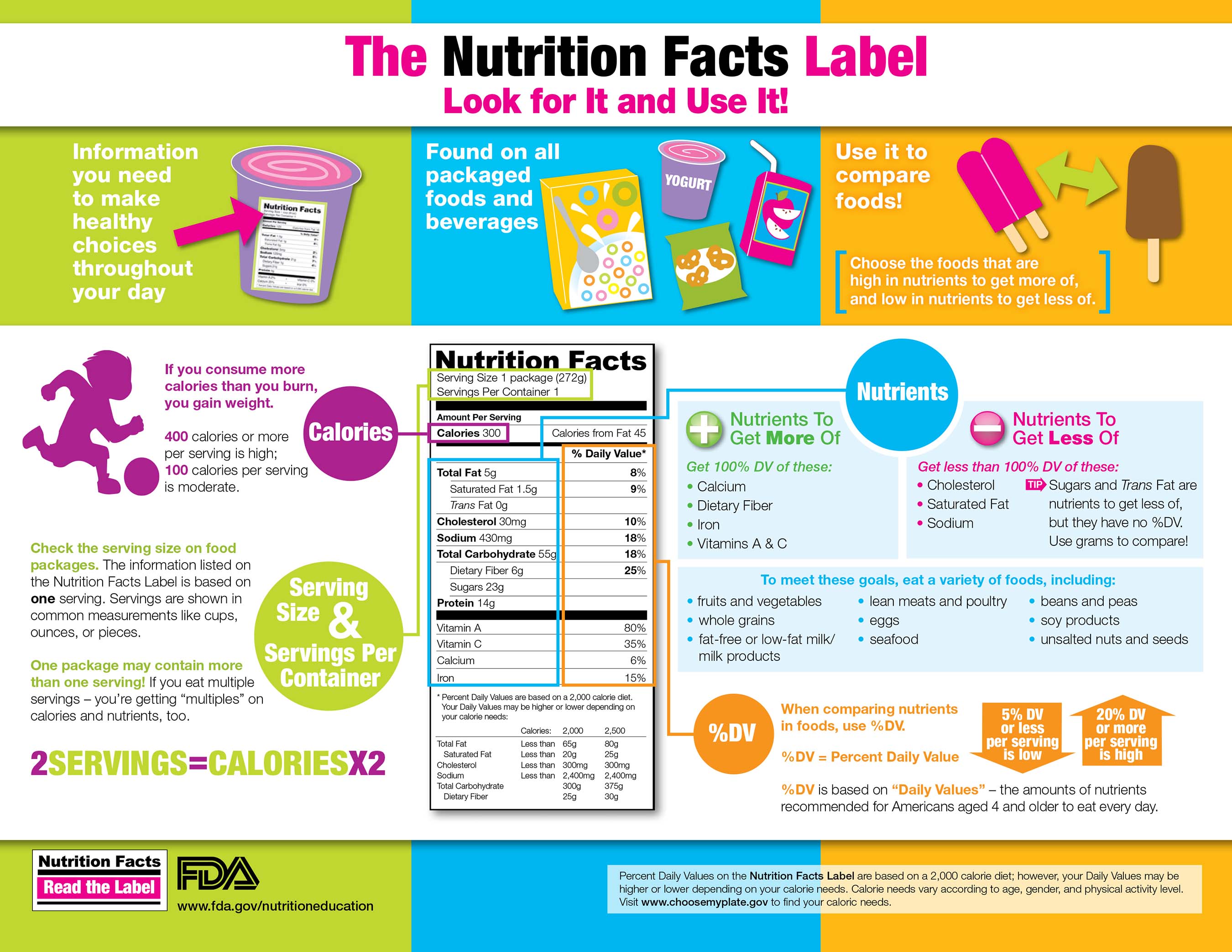

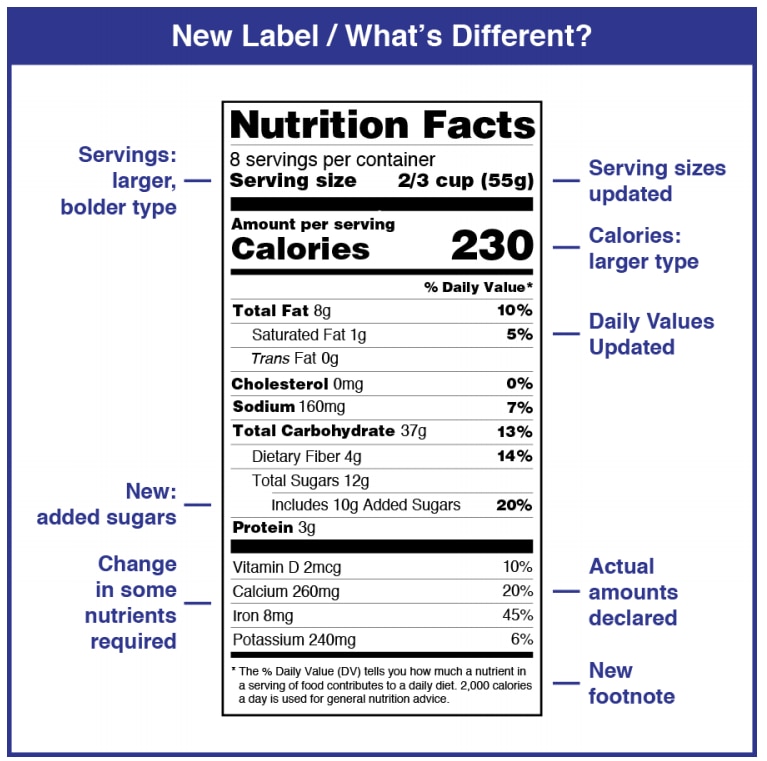
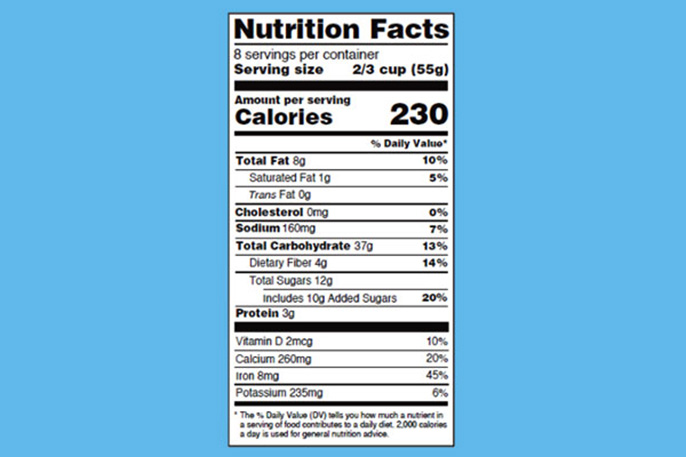

Post a Comment for "38 what to look for when reading nutrition labels"